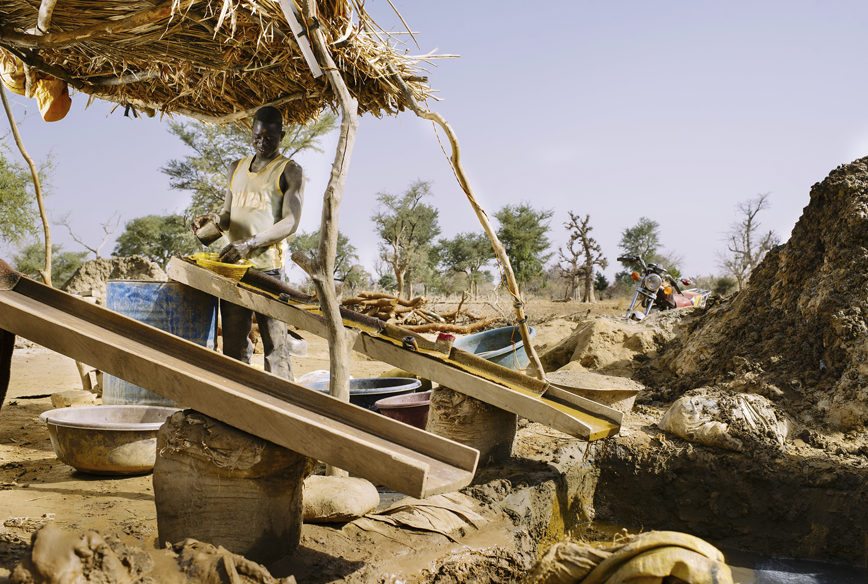Countries in West Africa are extremely rich in resources but tend to lose out on substantive amounts of government revenue from the extractive sector. Inadequate legal and regulatory frameworks and ineffective administrative systems are often cited as the main culprits for the low tax take.
However, lack of access to information required to impose the right amount of taxes, monitor compliance and audit mining companies often prevents revenue administrations from employing even their basic frameworks and systems.
Countries across West Africa struggle with similar issues and challenges, and often with the same multinational mining companies. Through sharing different experiences, approaches and practices, revenue and mining administrations in the region can therefore strengthen their position against these companies, who otherwise often benefit from the lack of effective tax enforcement.
The case for regional collaboration
ODI and GIZ have been supporting this exchange of experiences in West Africa. Our recent joint paper showcases useful practices and lessons learnt to strengthen taxation of the mining sector in four countries.
This month our co-organised regional exchange event on “Identifying and Mitigating Tax Risks in the Mining Sector” in Abidjan, Côte d’Ivoire, provided a timely opportunity to share such experiences and discuss ways to consolidate good practices in mining taxation across the region.
The event brought together West African government officials from revenue and mining administrations in Côte d’Ivoire, Guinea, Liberia, Sierra Leone, Burkina Faso, Mali, Niger, and Togo, as well as two guests from Tanzania, as representatives from East Africa.
The presentations, discussions and commentary from the plenary all pointed in one clear direction. To effectively tax large multinational mining companies, revenue and mining administrations must find ways to collaborate – both within and between countries.
Going forward, opportunities for collaboration include:
- exchanging information on common taxpayers;
- conducting joint audits;
- agreeing on common policy guidelines around tax incentives and other concessions to mining companies to avoid a race to the bottom.
This will increase transparency in the mining sector, level the playing field between governments, and the extractives industry and prevent multinationals from playing countries off against each other to squeeze them for the best possible deal.
However, strategic regional collaboration can also benefit companies playing by the rules. It can strengthen and stabilise the legal, regulatory and administrative framework in the region that will make it more predictable and reliable for the extractives industry to do business in the region.
So, what’s the hold-up?
Considering these clear advantages, one might ask why regional collaboration on mining tax issues is not yet common practice across West Africa. Community codes and directives passed by regional bodies such as the Economic Community of West African States (ECOWAS) and the West African Economic and Monetary Union (WAEMU) already allow for regional collaboration. But to date, countries make only little use of them.
A comment made during the regional exchange event hinted at one of the main reasons for this:
“Institutions think that they strengthen their relevance, their power by keeping information to themselves and not sharing it with anyone – but in fact, the opposite is true.”Institutions need to understand that strategic collaboration within and across countries can strengthen their position towards multinational mining companies to increase government revenues from the extractive sector, so that countries in West Africa can also benefit from their resource wealth.

